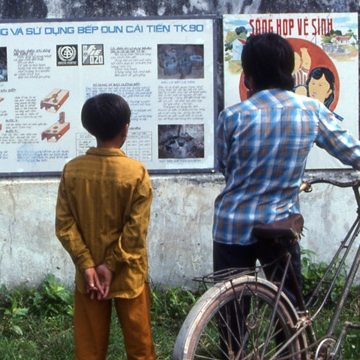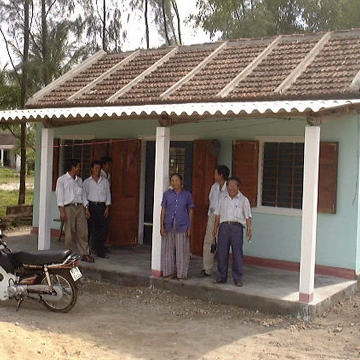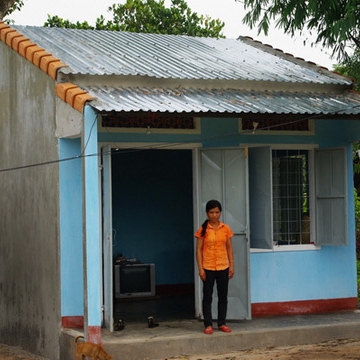Rethinking aid and corruption in Vietnam
Analysts say major graft allegations stemming from a Japanese aid project warrant a reconsideration of aid’s role in international relations and a deeper rooting-out of corruption
In a show of assuring the public about its resolve to tackle rampant graft, Vietnam suspended several officials and ordered scores of others to clarify their involvement in allegations that a Japanese firm had paid bribes to secure a deal for a rail project in Hanoi.
A deputy transport minister almost immediately led a delegation to Japan last month only to learn that agencies concerned there would not be able to reveal any further information other than what the Japanese media had already reported: The president of Japan Transportation Consultants (JTC) admitted that his company had paid bribes of 130 million yen (US$1.3 million) to civil servants in Vietnam, Indonesia and Uzbekistan between February 2008 and February this year to win work tied to projects funded by Japanese official development assistance (ODA).
An official or officials at Vietnam Railways, the state-owned operator of the railway system in the country, allegedly received 80 million yen ($782,000) for a Japan-funded ODA project totaling 4.2 billion-yen. Apparently, the specter of a similar scandal in 2008 that galvanized Japan into suspending aid to Vietnam still looms large, sowing worries that Tokyo, Hanoi's largest ODA donor, may do so again this time. While analysts have sought to assuage such fears, they also say the bottom line is that in a country where corruption is rife in public infrastructure projects, Vietnam has to jettison its entrenched mindset about ODA to prevent similar cases from occurring.
“Vietnam should stop regarding ODA as an achievement in international relations so it can tread more carefully before deciding on asking for more international aid,” said Nguyen Duc Thanh, a Vietnamese economist who advises the prime minister on economic policies.
Since 1993, international donors have pledged an estimated amount of $58.4 billion worth of ODA to Vietnam, government figures show, helping develop thousands of projects ranging from building infrastructure to alleviating poverty and improving the environment.
But a very small part of it is non-refundable. Most of it are loans with interest rates which are not as preferential as assumed. Interest rates and loan fees increase if disbursement is delayed and the use of loans is ineffective.
Two thirds of the international aid has been earmarked for infrastructure projects where the bidding process and equipment purchase has long been considered fertile ground for graft and corruption. Vietnam has made little headway in the latest corruption rankings by the Berlin-based watchdog Transparency International.
The 2013 Corruption Perceptions Index, which measures the perceived levels of public sector corruption, sees Vietnam up just seven spots to 116th out of 177 countries and territories with a score of 31/100. In Southeast Asia, it ranks seventh behind Singapore, Brunei, Malaysia, the Philippines, Thailand, and Indonesia. Given the status quo, analysts say at the end of the day ODA is a financial burden that Vietnamese younger generations will have to shoulder. “It is the bane of their future,” Thanh said.
Important aid partner
Japan churned out around $20 billion worth of ODA to Vietnam between 1993 and 2012. Japan said last month its aid to Vietnam this year would not be less than the 200 billion yen (US$1.94 billion) it gave in 2013. As a country seeking to be a good international citizen and be recognized as a major power, Japan follows the United Nations advice in providing aid to developing countries as part of its international obligations. 2015 will mark the target date for the UN’s Millennium Development Goals (MDGs) – a set of targets for education, poverty, health and other areas – and all donors have tried to claim their economic aid has been effective toward accomplishing the MDGs.
In the context of Vietnam achieving the first of its MDG on poverty reduction well ahead of the 2015 deadline, Japan will want to show the world that its aid is playing a role in this accomplishment, analysts say. With corruption, such as the most recent bribery case, risking prompting skepticism among the Japanese people of the benefits of economic assistance to Vietnam, the Japanese government may have to respond by scaling back ODA to regain the trust of its people.
But “it is unlikely Japan will suspend aid in any serious form or length of time given that Vietnam is one of its most important aid partners and models of success,” Edward Feasel, an expert at Soka University of America who has studied Japanese ODA to Vietnam, told Vietweek.
In 2008, Huynh Ngoc Si, former deputy director of the Ho Chi Minh City's transport department and head of a major Japanese ODA-backed highway project, was convicted of taking bribes in 2003 by receiving $262,000 from executives of Pacific Consultants International, which was hired as the project consultant. The case forced Japan to suspend hundreds of millions of dollars in development loans in December 2008. But Tokyo resumed the aid four months later.
Many of Japan’s main aid recipients in Asia are also main markets for its exports. This is important in Japan’s own economic progress, which has been stagnant for two decades, analysts say. Thus, economic assistance does bring benefits to Japan directly through exports and indirectly through increasing its recognition as a major economic donor, they say.
“Japan's aid program is about enhancing commercial opportunities for their business sector,” said Zach Abuza, a Washington-based Asia analyst.
“They support port construction for trade, they often link ODA to contracts to Japanese firms or consultancies, or the purchase of Japanese machinery and equipment,” he said. “It’s not that this is unusual, but no one does it to the degree that the Japanese do.”
Who benefits who?
During a meeting on the sidelines of the Nuclear Security Summit in the Netherlands last month, Vietnamese Prime Minister Nguyen Tan Dung told his Japanese counterpart Shinzo Abe that the two countries would closely work each other to thoroughly investigate the most recent graft allegations that involve the Vietnamese railway officials.
“If the allegations are true, [the two sides] need to immediately draw lessons from that,” Nguyen Van Nen, Minister and Chairman of the Government Office, told the media this week. But analysts say the bottom line is that instead of focusing on the actors, Vietnam needs to get to the bottom of systemic conditions that make bribery endemic such as the lack of transparency and lax government oversight. The issue is to implement practices that reduce corruption in all government projects. The next step – but one that only works after corruption is minimized – is to evaluate very carefully whether a project, ODA or not, is the best deal for the country.
The analysts raise an important question: Would Vietnam be better off without foreign aid and Japanese ODA in particular?
“Whatever the inequities in Japan's ODA, it is clear that Vietnam benefits,” said Carl Thayer, a Vietnam expert with the University of New South Wales. “But it should be noted that when I use the term ‘Japan’ and ‘Vietnam’ I’m mainly including not only the people who benefit from the aid, but the groups of elites who provide and monitor the delivery of aid.”
Thanh Nien News











